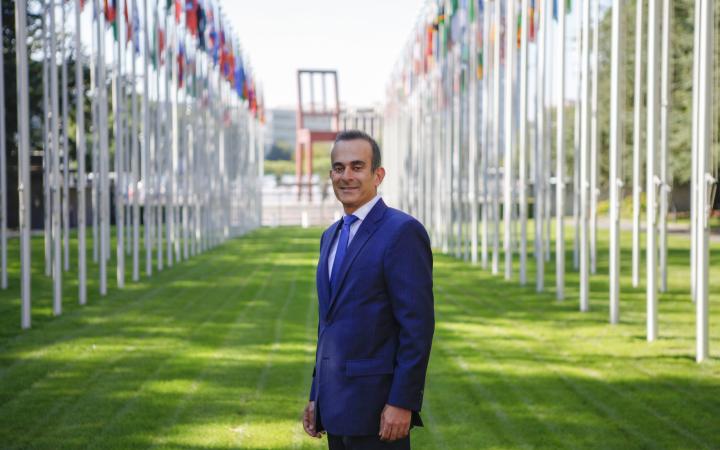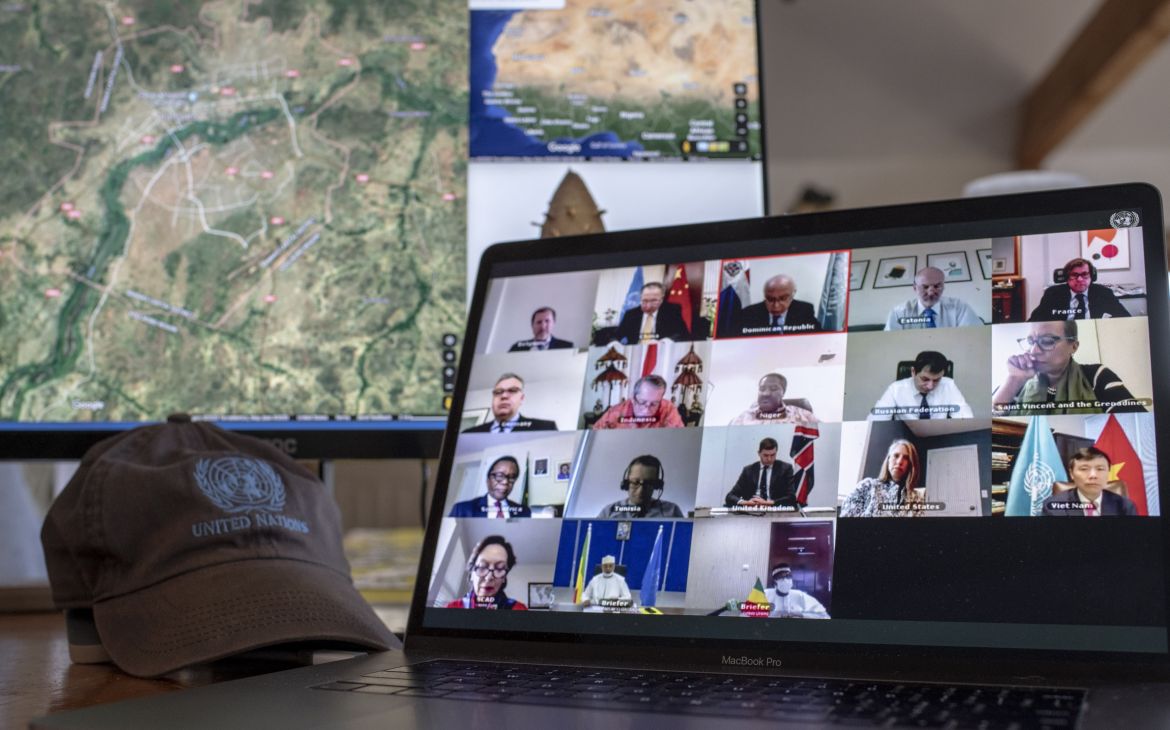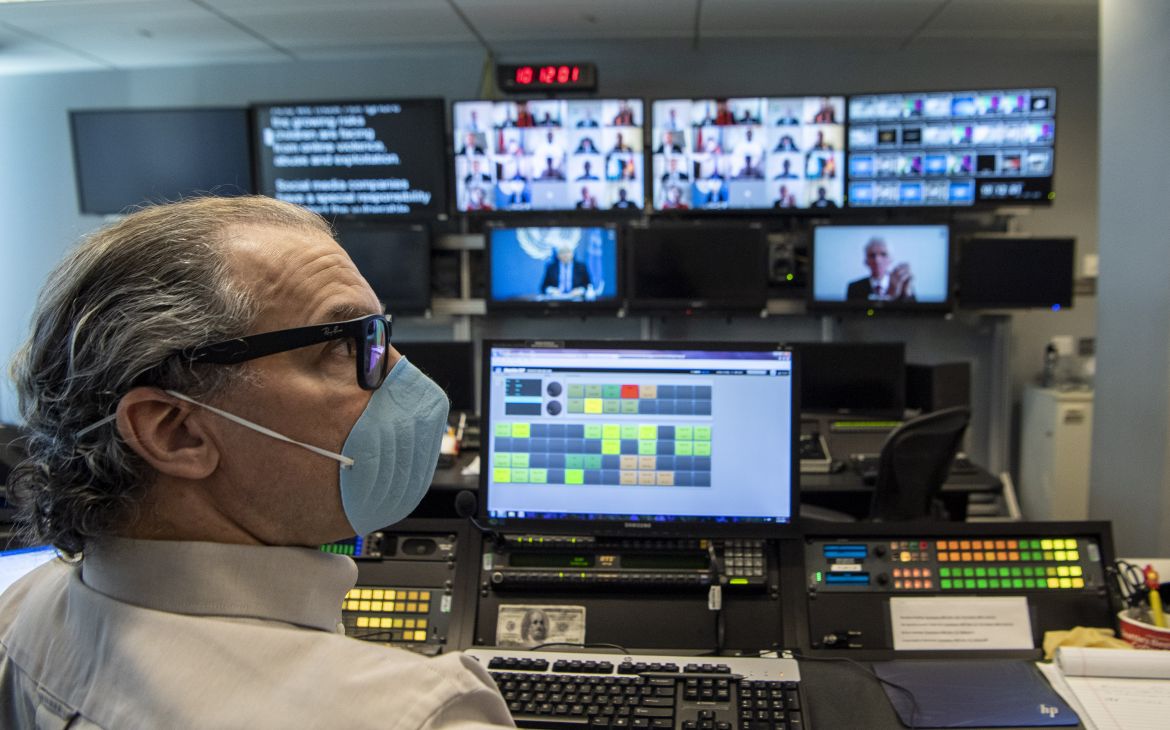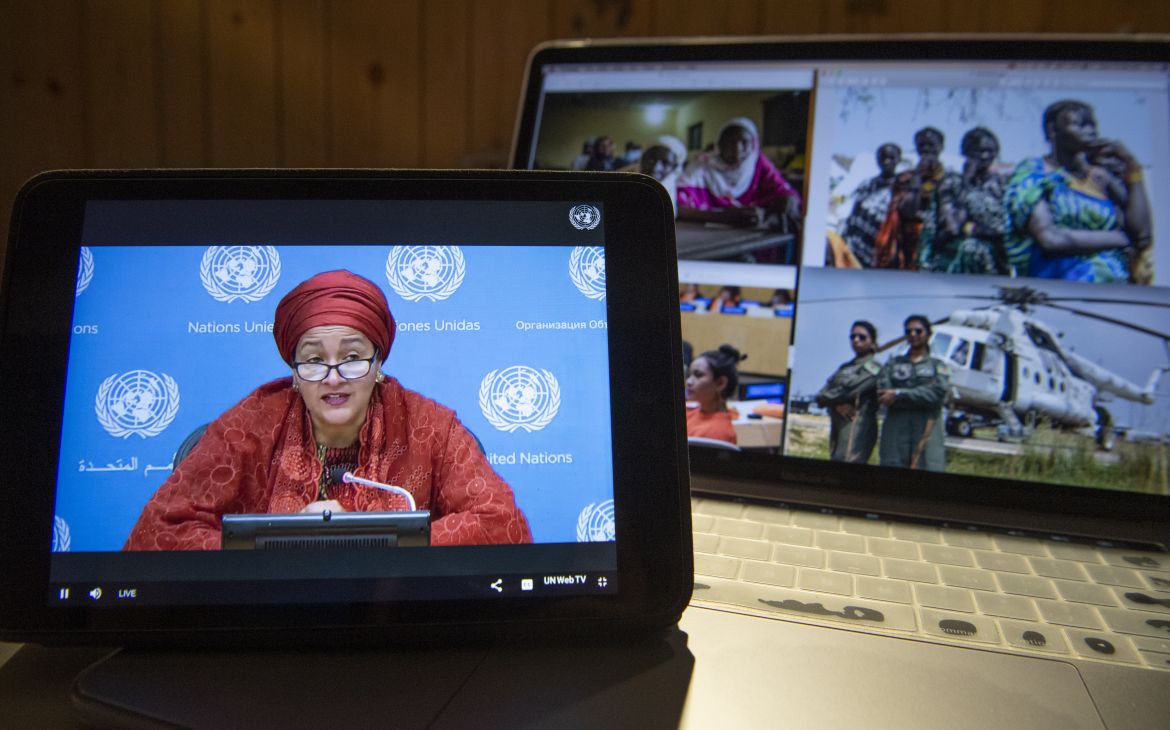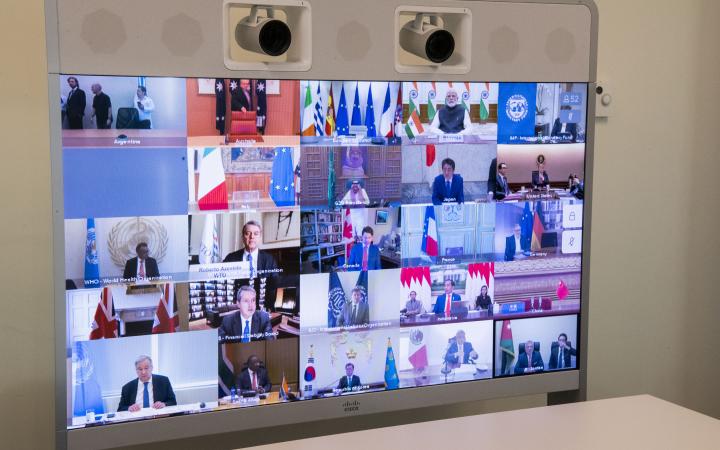April 2020, Geneva, Switzerland - Unforeseen and unprecedented challenges such as natural disasters, terrorism, cyber warfare, and pandemics are shaping the 21st century. The transnational nature of such challenges requires cross-sectoral, multifaceted, and complex responses. Therefore, every sector, from the public to the private, is affected and required to yield tangible solutions. On April 24, the world celebrates the International Day of Multilateralism and Diplomacy for Peace. The event epitomises an essential opportunity to commend the significance and the need for a robust multilateral approach to tackle and overcome the current crisis. Moreover, as recently stated by the Secretary-General of the United Nations (UN), “with the right actions, the COVID-19 pandemic can mark the beginning of a new type of global and societal cooperation”. Nonetheless, many questions arise on how diplomacy and the UN system will practically adapt to the paradigm shift.
In this exclusive interview, Mr. Rabih El-Haddad, Director of the UNITAR Division for Multilateral Diplomacy, addresses the questions by sharing effective insights into UNITAR’s model and experience in tackling those challenges.
Given the traditional face-to-face nature of diplomatic practices, is COVID-19 jeopardising the essence of diplomacy at large?
Rabih El-Haddad (RH): The current pandemic is surely affecting the art of diplomacy at its core. In other words, there is no diplomatic immunity to the crisis. However, it is not jeopardising its purpose. We are currently seeing a reshape of diplomatic practices on a global level. Priorities are changing week in week out. Foreign Ministries in some of the most affected countries, such as Italy and Spain, are managing the supplying of medical equipment which requires considerable cooperation among countries. Most recently the United Kingdom has announced a £75 million plan to bring back the British citizens currently overseas. Again, that entails a high degree of global collaboration. On top of that, the International Monetary Fund is warning us about an imminent global recession. As a matter of fact, according to the International Labour Organization five to 25 million jobs will be eradicated en masse, and the world could lose up to more than three trillion dollars in labour income. Furthermore, the World Trade Organization is expecting the world trade to plunge between 13 per cent and 32 per cent this year. Overall, we need to bear in mind that the challenge is multidimensional, and that diplomacy is surely changing the tools through which it operates whilst still thriving, let alone being jeopardised.
What path should diplomacy follow to tackle the existing and forthcoming challenges?
RH: Diplomacy is alive and it is shifting its paradigm. The bilateral work of diplomats has radically changed. They naturally moved their attention onto the national level, safeguarding the national interests. In turn, diplomacy has become a crisis management practice, mostly beneficial on the short term. However, given the multi-layered trait of the challenges, we will need a more concerted effort to confront them on the long term. Therefore, diplomacy should follow the essence of multilateralism, which combines efforts by all States to tackle a common challenge that transcends borders. Undoubtedly, support to international organisations is the key for effective multilateralism. Accordingly, member states of the European Union are reinforcing their commitment in supporting the work of the World Health Organization, a pivotal machinery in fighting the pandemic. Similarly, Saudi Arabia has pledged USD 500 million to health organisations and programmes. In addition, the present and forthcoming challenges are going to have tremendous spillover effects that go beyond one single realm. Global economy, peace, and security will be dramatically impacted by both the pandemic and future transnational challenges. Hence, I do not envisage any better path to follow than that of multilateralism, harmony, and solidarity.
How is the current crisis affecting the work and overall mission of the UN and how is the UN system reacting?
RH: Like every other diplomatic actor, the UN is far from being immune to the crisis. The UN is being severely affected in the way it conducts diplomacy. Almost all negotiations occur face-to-face and they require the use of non-verbal communication to build rapport and trust among delegates. Therefore, finding a solution that would replace the physical presence at the negotiation table is an arduous mission. Having said that, the UN is managing to proactively conduct distance diplomacy. The intergovernmental machinery of the UN is currently exploring and implementing virtual means for conducting business as usual. A plethora of online platforms and measures have been tested by the UN governing bodies to conduct their work. In turn, the critical work of the UN is still being conducted by virtual means within the General Assembly, the Security Council, and the Economic and Social Council. In fact, the General Assembly has successfully held its fifth Committee, making relevant decisions regarding the budget, by technological means. Moreover, the Council (Security Council, Ed.) has been able to discuss, inter alia, the issues vis-à-vis Libya, the DRC (the Democratic Republic of the Congo, Ed.), and COVID-19; and the Economic and Social Council has been delivering its work in promoting sustainable development.
I would also like to take the opportunity to commend the work of both the World Health Organization and the World Bank. Both entities, in accordance with the recent recommendations of the Secretary-General, are constantly cooperating to help the least developed countries and the most vulnerable societies in facing the challenge. Reaching out to the furthest first and leaving no one behind remain high on the agenda of international organisations.
COVID-19 is severely impacting learning institutions and the world of knowledge at large. Specifically, what are the impacts on UNITAR’s work and vision?
RH: We have seen major public and private learning institutions globally, including world famous universities, moving onto distance learning solutions. Similarly, UNITAR is adapting, innovating, and redirecting its whole work to the online sphere. We are rethinking learning methodologies and learning sharing tools. We are a learning institution which has been delivering face-to-face knowledge products and services since its establishment in 1963. However, throughout the years, we have been developing and operating on a virtual level too, offering an array of products and services from distance. As a result, UNITAR’s work, vision, and mission have been altered to some extent but not hindered. Overall, I can proudly say that we have been able to build a high degree of resilience thanks to our extensive work and experience.
What are the strategies and solutions being implemented by UNITAR?
RH: As previously mentioned, we shifted all our work online at the moment. That implies the reshaping as well as the actual replacement of all our face-to-face activities. Specifically, at the Division for Multilateral Diplomacy at UNITAR we have managed to develop and implement new knowledge products and services. We have recently launched five brand-new e-workshops, entailing innovative training approaches, on a plethora of topics including women’s leadership, conducting diplomacy digitally, and negotiation. Moreover, we offer two online diplomas on Multilateral Diplomacy and International Law as well as a master’s programme and a certificate on Development studies and Diplomacy in collaboration with the University for Peace. We have also recently launched the Executive Diploma in Business Leadership and International Affairs with the INCAE Business School. In addition, we provide a wide range of our well-established e-Learning courses, with more to come, on numerous topics including a focused one on Science diplomacy and informed decision-making for life-long learning. In the upcoming weeks, we will also launch a podcast series, in collaboration with prominent practitioners of diplomacy, free and open for everyone. Lastly, we are also developing other products and services to be gradually released in the upcoming months.
Given your experience, it is fair to claim that the crisis is providing you with an unprecedented opportunity to enhance your work and overall mission. How do you see the future work of UNITAR?
RH: The current crisis has given us the unique opportunity to boost our creativity, to explore new avenues, and to expand our horizons beyond conventional frameworks. We are looking beyond mere adaption, we are aiming for innovation. Not only are we strengthening our resilience levels and leadership role in providing innovative learning solutions, but we are also able to deliver online products worldwide rethinking our capabilities and overcoming limits. Further distance learning solutions will surely be developed in the near future, in cooperation with our partners, to reach out and support all beneficiaries, despite of their capabilities and location. In turn, we will be able to cut costs, provide high-quality affordable products, and have a tangible impact on climate change by offering more accessible products without the need to physically move. Hence, we will have further opportunities to provide ad hoc services to the most vulnerable and to reshape learning methodologies as well as learning sharing tools.
Is there anything else you would like to say to the reader?
RH: Overall, I believe that there is a bright side even in this gloomy crisis. We have time to rethink ourselves as individuals and as part of a larger community called humanity and how we operate within our planet. We have time to nurture our inner souls, fostering tolerance, compassion, and empathy. We have time to forge fundamental tools for strategic and enlightened decision-making, preparing for other crucial challenges such as climate change, food security, access to education, and many more.
I would like to borrow the words of the former Secretary-General Kofi Annan, that today more than ever powerfully resonate, to give a glimpse of hope to everyone. He once said that “knowledge is power. Information is liberating. Education is the premise of progress, in every society, in every family” and “more than ever before in human history, we share a common destiny. We can master it only if we face it together. And that, my friends, is why we have the United Nations.”
I would also like to use this opportunity to express sincere and profound gratitude to everyone who is relentlessly providing help during this strenuous emergency. We will come through this together and stronger.
Mr. Rabih El-Haddad leads the Multilateral Diplomacy Division that encompasses the Multilateral Diplomacy and International Law Programmes and the Institute’s New York Office. He plays a key role in supporting the UN intergovernmental machinery towards achieving an enlightened and efficient multilateral decision-making. In doing so, Mr. El-Haddad works hand in hand with Ministries of Foreign Affairs, the UN Governing Bodies Secretariats, ministries in charge of complex and international negotiations as well as academia, think-tanks, and the private sector. During his extensive career he has supported major negotiations led by the G77, the LDC Group, the African Group, SIDS, and the GCC.
The United Nations Institute for Training and Research (UNITAR) is the training arm of the United Nations. UNITAR's mission is to develop the individual, institutional, and organisational capacities of member states and other UN stakeholders. To reach the goal, UNITAR offers high-quality learning solutions and related knowledge products and services to enhance decision-making and to support country-level action for overcoming global challenges.
Further links to UNITAR services
For more information on the work of UNITAR's Division for Multilateral Diplomacy, you can consult the below links.


